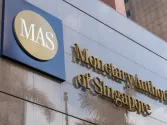
Weekly Global News Wrap Up: German banks need $5.9b additional capital buffer; Citigroup ditched Apple Card partnership talks: report
And UniCredit eyes to sell $5.6b worth of bad loans.
From Bloomberg:
A financial stability committee recommended an additional capital requirement for German banks as it seeks to force lenders to build up defenses before the next downturn. Adoption of the buffer is a near certainty and it will increase regulatory demands by 0.25 ppt from the third quarter of next year or about $5.9b (EUR5.3b) in additional capital, German banking supervisor Felix Hufeld said at a news conference in Berlin.
An increase of 25 basis points in Deutsche Bank AG’s CET1 requirement would be equivalent to about $971m (EUR870m) in additional capital based on the level of its risk-weighted assets at the end of the first quarter. The lender currently exceeds its regulatory capital requirements and the additional buffer won’t change that if adopted.
From CNBC:
Citigroup was in advanced negotiations with Apple for the card but pulled out amidst doubts that it could earn an acceptable profit on the partnership, according to people with knowledge of the talks. Other banks, including JP Morgan Chase, Barclays and Synchrony, also bid on the business. Apple and the banks declined to comment on this story.
It turns out that the Apple Card’s consumer-friendly features — no fees of any kind, software that actively encourages users to avoid debt or pay it down quickly, and potentially lower interest rates — make it harder for banks to make money on the product. Even features like the card’s calendar-based billing can impact a lender’s cost of funding and servicing, since customers’ borrowing will be concentrated at month-end, rather than spread out over weeks.
From Bloomberg:
UniCredit SpA is preparing to sell non-performing loans with a face value of as much as 5 billion euros ($5.6 billion), accelerating a long-running cleanup ahead of the bank’s new strategic plan, according to people familiar with the discussions.
The Italian lender is selecting the loans and defining the sale’s structure, said the people, asking not to be identified because the information isn’t public. UniCredit is mulling a structured transaction in one or more tranches to be completed by the end of the year, the people said. The size of the portfolio and the structure may change, according to the people.






















 Advertise
Advertise








